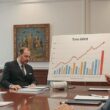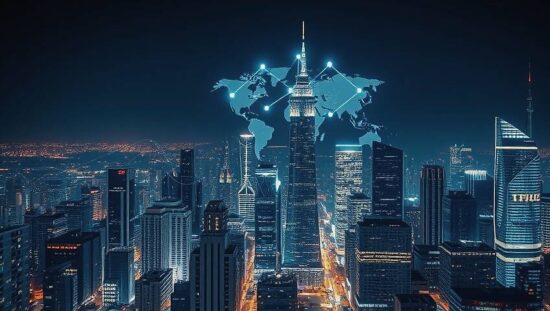Ahead of this year’s Munich Security Conference (MSC) from February 14 to 16, the organizers foresee a development towards a multipolar world. “Depending on what you look at, the world is today unipolar, bipolar and multipolar and it’s all somehow simultaneously” said Tobias Bunde, Director of Research and Policy at the MSC, at the presentation of the Munich Security Report on Monday. Some key indicators suggest that “we will have to deal with a greater number of powers that have significant influence and will make it felt in the future.”
The political and economic liberalism that shaped the unipolar era after the Cold War has faced strong competition, according to the report. This “order vision” is being increasingly challenged from within, as the rise of right-wing populism in many liberal democracies shows. Moreover, there is a growing ideological split between democracies and autocracies and a growing offer of different order models that compete and sometimes even clash violently with each other. “For the future of international order, the number of great powers may be less decisive than the question of what order visions they have and how compatible these visions are” Bunde explained.
Ahead of the Munich Security Conference, which begins this week, US Vice President JD Vance is expected to attend, as announced by MSC Chief Christoph Heusgen. European state and government leaders, as well as EU institutions, will also be represented. “We are very happy that we will have the top of the European Union: President Ursula von der Leyen, Vice President and EU Foreign Policy Chief Kaja Kallas. We will have the President of the European Council, António Costa, the President of the European Parliament, Roberta Metsola, the EU Defense Commissioner, Kubilius and over 10 European Commissioners” Heusgen said.
Participants are also expected from numerous other countries. Representatives of Iran are not yet listed on the guest list. “We see the human rights situation, we see the question of how many hostages are in prison” Heusgen said in response to a question from the German News Agency. “That’s something we must handle very carefully.” The close coordination with the German government is still ongoing.





